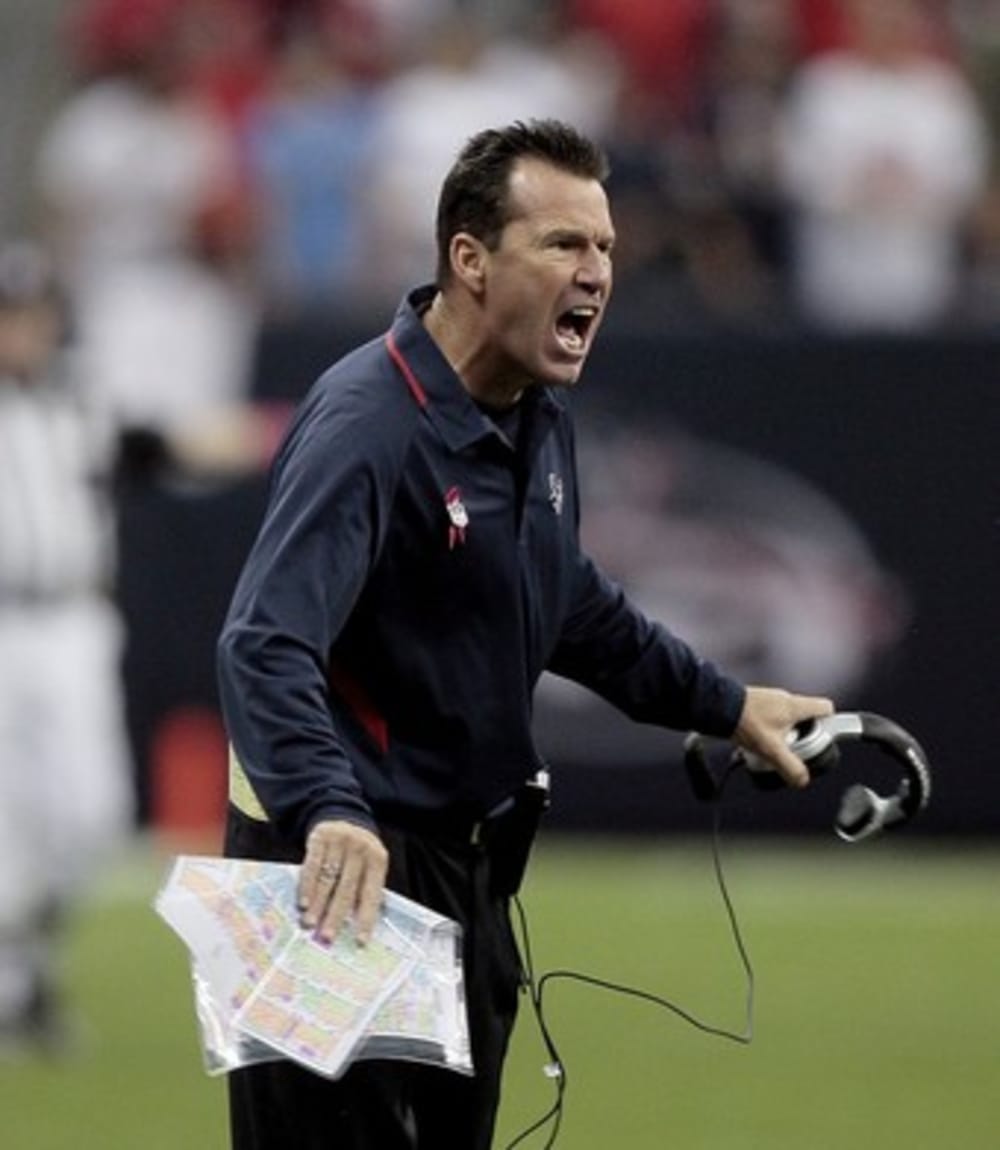Kickin' It
Bob Bradley is U.S. soccer's version of Gary Kubiak: Keeping him makes no sense
 Bob Bradley
Bob Bradley Gary Kubiak
Gary Kubiak
In the world of international soccer, the beat goes on. The Gold Cup has scarcely ended, but Copa America — the South American version of the Eurocup — is already underway this weekend in host country Argentina.
Despite being situated in North America, Mexico is invited to this year’s tournament. It's mostly sending a youth team, and resting the stars, such as Chicharito and Giovanni Dos Santos, that shined so brightly in the Gold Cup. (And Mexico dropped eight players from its Copa America team for partying after curfew with “unidentified women.”)
So Mexico will likely make an early exit from a tournament that is drawing a great deal of international interest, as both a preview of the 2014 World Cup in Brazil, and as a renewal of perhaps the greatest national rivalry anywhere — Argentina vs. Brazil. But Mexico will still be far ahead of the United States.
U.S. soccer is little like last year’s disappointing Houston Texans, and U.S. coach Bob Bradley definitely gives off a very Gary Kubiak vibe.
The U.S. has had a good run the last 10 years or so, starting with its defeat of Mexico in the 2002 World Cup quarterfinals. (Of course, the team did flame out in the 2006 World Cup, not advancing from the group stage.) Specifically, since 1999, the U.S. had Mexico’s number, going 10-5-2, including last week's Gold Cup final loss, so we could at least pound our chests over regional dominance.
But no mas. Mexico has a very exciting young team (in 2005 a team led by Dos Santos won the international under-17 championship), and it appears to have left the U.S. in its collective dust for the foreseeable future.
In fact, many commentators are concerned that the U.S. has taken a step back from its decent performance at the 2010 World Cup, and that the way forward isn’t clear. U.S. soccer is little like last year’s disappointing Houston Texans, and U.S. coach Bob Bradley definitely gives off a very Gary Kubiak vibe. That is, to fans he seems bland and uninspiring, and incapable of adjusting to game situations.
His Gold Cup final tactics have been roundly second guessed. After the U.S. took a very unexpected 2-0 lead against Mexico, Bradley continued to treat the game as if it were 0-0. That is, the team didn’t adopt a more defensive strategy even after Steve Cherundolo, a key backline defender, was hurt. The defense quickly fell into shambles and took Tim Howard’s goalkeeping with it.
But in any case, it’s rare for a national team to keep its coach through two World Cup cycles. But the U.S. appears to be on the verge of doing just that — for a second time. Bruce Arenas led the team to unexpected success in 2002, reaching the semifinals, but flamed out in 2006.
Now Bradley has been rewarded with a contract extension for doing “good enough” in 2010, when most countries would’ve changed coaches no matter how well they’d done. (In 2010 Italy and France were the only teams that had brought back its coaches from 2006, and both teams embarrassed themselves.)
That complacency should certainly sound familiar to Texans’ fans.
It’s enough to make U.S. fans question how hungry the U.S. Soccer Federation hierarchy really is. Twice they’ve teased American fans by getting into serious talks with former German player and coach Jurgen Klinsmann, only to lose him both times, allegedly because he wants too much control.
Even if the U.S. doesn’t hire Klinsmann, if it wants to take the next step forward, instead of a long step back, it should at least replace Bradley with a coach that has won at the international level. That said, it’s likely that Bradley will lead the team into Brazil in 2014, assuming the U.S. make the tournament.
After all, he came in second in the Gold Cup, and apparently that’s good enough.
